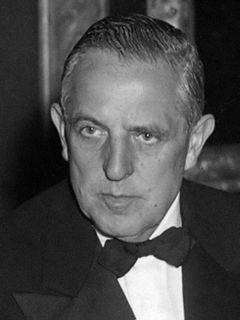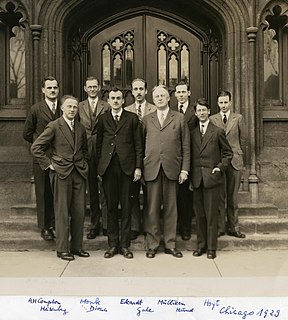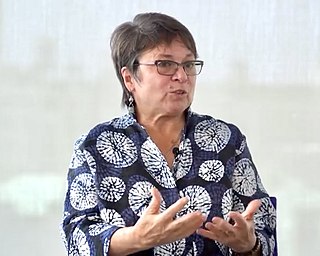A Quote by Jean-Paul Sartre
We only become what we are by the radical and deep-seated refusal of that which others have made of us.
Related Quotes
Our sense of identity is in large measure conferred on us by others in the ways they treat or mistreat us, recognize or ignore us, praise us or punish us. Some people make us timid and shy; others elicit our sex appeal and dominance. In some groups we are made leaders, while in others we are reduced to being followers. We come to live up to or down to the expectations others have of us.
You’ll join me sooner than you know in a place with . . . no illusions, where the truth is the only architecture, the only color, the only sound--where that which we sense merely on occasion, and which takes us up and gives us the rare and beautiful glimpses of the things we truly love, flows in deep rivers and tumbles about like clouds in the sky.
Some authors write nonsense in a clear style, and others sense in an obscure one; some can reason without being able to persuade, others can persuade without being able to reason; some dive so deep that they descend into darkness, and others soar so high that they give us no light; and some, in a vain attempt to be cutting and dry, give us only that which is cut and dried. We should labor, therefore, to treat with ease of things that are difficult; with familiarity, of things that are novel; and with perspicuity, of things that are profound.
The radical ideas of one generation have become the common sense of the next. We all stand on the shoulders of earlier generations of reformers, radicals, and idealists who challenged the status quo of their day. They helped change America by organizing movements, pushing for radical reforms, popularizing progressive ideas, and spurring others to action.
I was born into a working class Irish Catholic family at the brutal bottom of the Great Depression. I suppose this early imprinting and conditioning made me a life-long radical. My education was mostly scientific, majoring in electrical engineering and applied math. Those imprints made me a life-long rationalist. I have become increasingly skeptical about, or detached from, the assumption that radicalism and rationalism are the only correct perspectives with which to view life, but they remain my favorite perspectives.







































